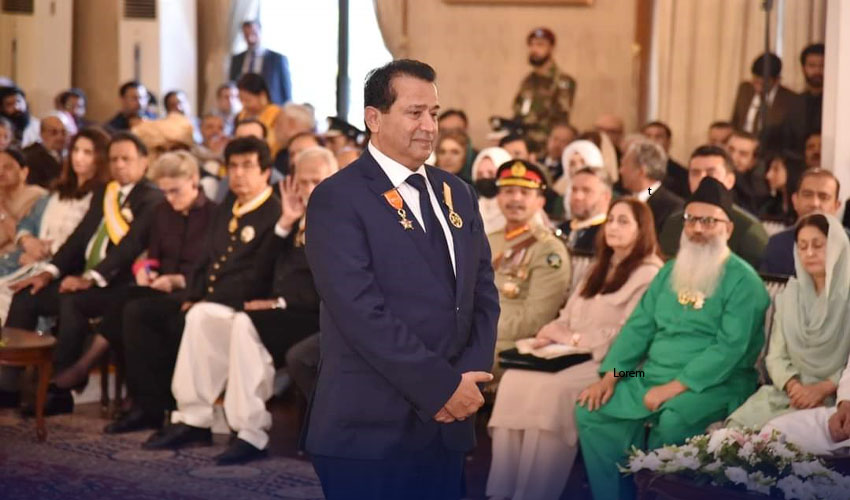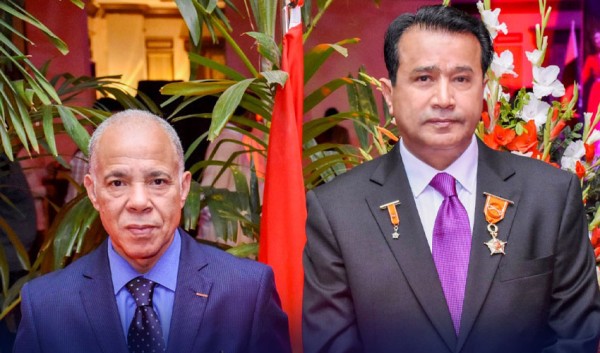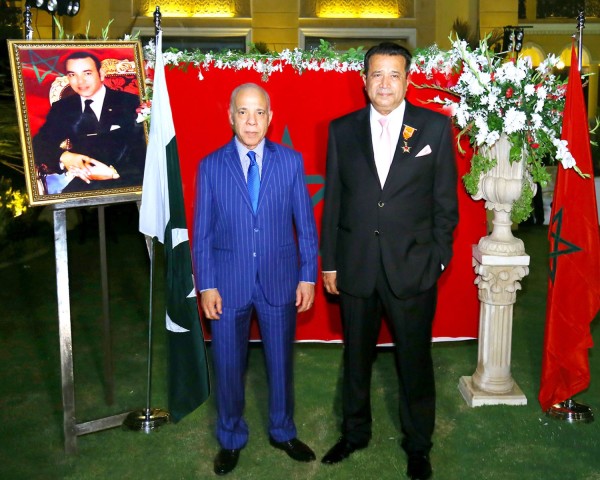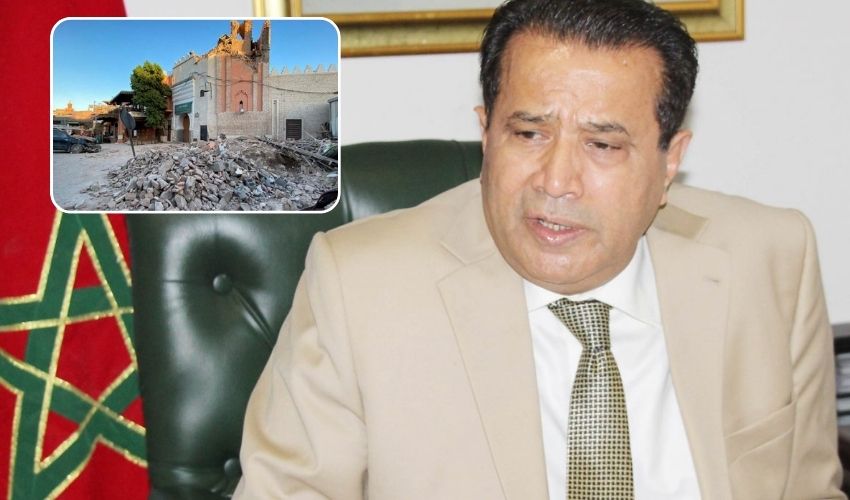Mirza Ishtiaq Baig, the Honorary Consul General of Morocco in Pakistan and is well-known for his business endeavors, has called for immediate assistance to be dispatched to Morocco in the wake of the devastating earthquake that struck the nation last Friday.
In an exclusive conversation with Samaa Web, Mr. Baig emphasized the need for immediate assistance to alleviate the suffering of the Moroccan people.
The earthquake, measuring a magnitude of 6.8 with a depth of 18 kilometers, rattled Morocco, with its epicenter located 72 kilometers away from the picturesque tourist destination of Marrakesh.
The disaster caused substantial damage to tourist sites, leaving many landmarks in ruins. Furthermore, aftershocks with a magnitude of 4.9 were felt just 19 minutes later, compounding the destruction.
Mirza Ishtiaq Baig, known for his philanthropic work, stressed the importance of international solidarity during such natural disasters.
"Whenever a natural disaster, such as an earthquake or a flood, strikes a nation, that nation hopes for assistance from other countries,” he said.
The Honorary Consul General lamented that despite the severity of the situation, no aid had reached Morocco from any Muslim country.

He noted that while countries like the United Arab Emirates (UAE), France, and Japan had announced aid, it was crucial to move beyond announcements and initiate aid operations promptly.
Additionally, he remarked, "I am appealing via Samaa Web for us to take a step beyond mere announcements and initiate aid operations promptly to support our Moroccan brothers and sisters. This must be coordinated swiftly because merely expressing regret is the simplest response".
Mirza Ishtiaq Baig, the ex-husband of the late Pakistani singer Nazia Hasan, stressed the significance of extending aid in accordance with the principles of Islam, emphasizing, "Our faith instructs us to assist our brethren in times of adversity, and our fellow Muslims in Morocco are eagerly anticipating our support."

Regarding the urgency of the situation, Mr. Baig explained that the next 72 hours were critical, as the death toll had already exceeded 2000, and people were still trapped under the rubble of collapsed buildings.
Mirza Ishtiaq Baig also voiced his concerns regarding the hesitancy of certain nations to extend assistance to Morocco, drawing comparisons with previous instances of international relief efforts.
He highlighted that during times of crisis, countries like Pakistan had swiftly dispatched aid teams to nations in distress, citing the reciprocal assistance that had occurred between Pakistan and Turkey. However, he expressed apprehension over the fact that the interim Moroccan government had not issued an official appeal for international aid.
Baig stressed the immediate necessity for international aid teams to converge on Morocco and aid earthquake victims, akin to the proactive response seen in Turkey where Pakistani aid teams played a crucial role in rescuing individuals from the debris and establishing vital aid camps.
He underscored that a similar approach was essential in Morocco to address the urgent requirements, encompassing rescue teams, medications, medical expertise, sustenance, and shelter.

In response, Mr. Baig advocated for the global community to act without waiting for Morocco's government to formally request assistance, emphasizing the imperative nature of these basic needs in alleviating the suffering caused by the disaster.
Referring to Pakistan's efforts to assist Morocco, Mr. Baig shared that he had been in contact with the Al Khidmat Foundation and assured them of all necessary assistance related to travel, immigration, and visa consultancy in Morocco.
He also mentioned coordinating with private doctors associations from across Pakistan to set up voluntary camps in Morocco.
Concluding the interview, Mr. Baig drew attention to the significant economic consequences that the earthquake had inflicted upon Morocco, a nation heavily dependent on its tourism industry.
He observed that the devastation of key tourist destinations and infrastructure had severely impacted Morocco's economy, accentuating the pressing requirement for international assistance to aid in the country's recovery efforts.



























